Your kidneys get damaged over time. Let’s find out how to improve kidney function in the elderly to avoid a major catastrophe before it happens.
Contents
The kidneys are bean-shaped organs located on the left and right of your spine and below the rib cage. It is a part of your urinary system, including the urinary bladder, urethra, and uterus.
You may think that kidneys only have the work of removing waste products from your body. But in actuality, it has other functions too.
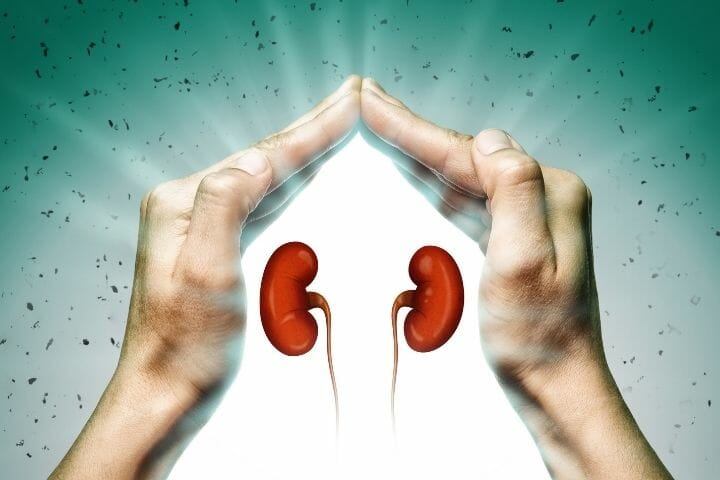
Unfortunately, the functions of the kidneys decrease as you age. The blood vessels supplying your kidney become harder with time. So, your kidney takes longer to filter the blood or remove waste products from your body.
Again, chronic problems like obesity and diabetes have a terrible impact on the health of the kidney. Kidney disease is a severe problem, but early detection and management can improve the life of your kidneys. This article lists a few ways to improve kidney function in the elderly. Keep reading!
What Are The Functions Of My Kidneys?
- Filter waste products
- Remove excess water
- Remove impurities from the blood
- Regulates PH, salt, and potassium in the body.
- Produce hormones that help in functioning other organs in the body.
- It activates a form of vitamin D, which helps for building bones
- Controls your blood pressure
Aging And Kidney Problems
Kidney disease can occur in people of all ages. But if your age is above 60, you are more likely to suffer from kidney problems. Kidney problems often develop slowly with few signs and symptoms. So, you may not realize soon about your kidney problems.
So, the National Kidney Foundation advises every person over 60 years to do kidney screening. The NKF recommends doing a urine albumin test annually, which checks the amount of protein in the urine, one of the earliest signs of kidney problems.
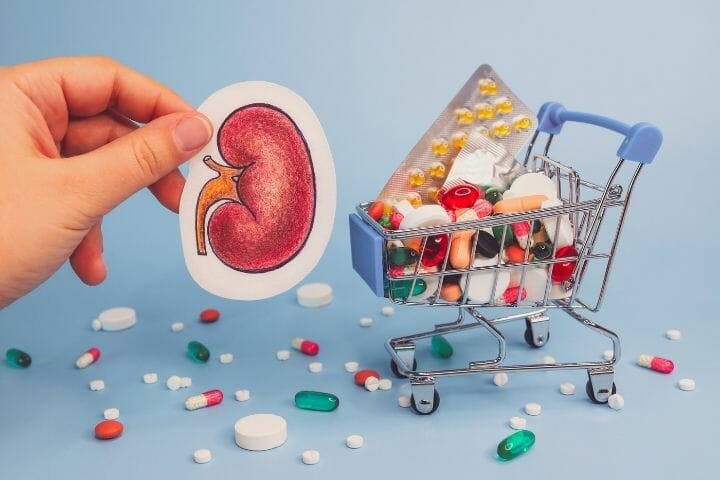
How Can I Improve My Kidney Function?
Maintaining the health of your kidney is essential for your wellbeing. You need to keep your kidneys healthy to expel all the waste products from your body and produce hormones that help to function your body properly. Here are a few tips to improve your kidney function.
#1. Stay Active
Doing regular exercise is the key to reducing the risk of chronic kidney diseases. Regular exercise also has other benefits, including lowering your blood pressure and boosting the health of your heart which is again very essential for preventing kidney diseases.
You don’t have to run a marathon or do vigorous exercises to reap the benefits. You can do some simple exercises like walking, cycling, or doing some daily yoga asanas that will help you improve kidney function.
#2. Keep Your Blood Sugar In Control
If you have diabetes, you are at greater risk of having kidney diseases. The food which you eat gets converted into glucose in your body. The insulin hormone secreted by your pancreas helps the cells absorb the glucose so that the glucose can be used as an energy source.
But if you have diabetes, then your body stops producing insulin. Consequently, the glucose starts accumulating in the blood, and your kidneys have to work extra hard to filter the blood. The years of exertion of your kidneys can lead to partial or total damage.
So, it’s better to keep your blood sugar level in control to prevent kidney problems. I will recommend you to get your kidneys screened at least once a year if you have diabetes so that if there are any kidney problems, you can take steps to prevent additional problems or damage.
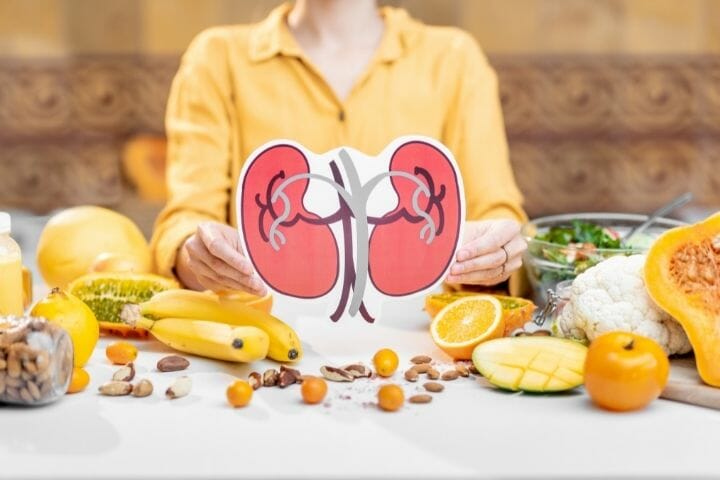
#3. Keep Your Blood pressure In Control
The normal blood pressure reading is 120/80. But when your blood pressure readings are always 140/90, you have high blood pressure. High blood pressure can be the reason for kidney problems. You can have high blood pressure if you have diabetes or cardiovascular diseases.
Changing lifestyle and eating nutritious and balanced food is the key to keeping the blood pressure in control. However, talk to your doctor regarding high blood pressure to take effective steps to maintain blood pressure in the normal range.
#4. Monitor Your Weight And Eat Healthy Food
If you are overweight, you are at high risk of having numerous diseases like diabetes and cardiovascular disease that can damage the kidneys. You need to try hard to get down to a healthy weight.
Try to focus on healthy food with low sodium content like cauliflower, blueberries, and fish. Always purchase fresh fruits and vegetables rather than processed food to eat.
#5. Drink More Fluids
Try to drink as much fluids as possible. Fluids help in removing toxins from your body. They also aid in improving the health of your kidneys. It’s difficult to say the exact amount of water you need each day to remain healthy and keep your kidneys in good condition.
This is so because the water you require depends on various factors like the climate you stay in, your overall health condition, gender, the type of exercise you do daily, and numerous others. But on average, you should aim to drink at least 6-8 cups of water a day.
Another important thing is that if you have kidney stones before, then it’s better to drink more than 8 cups of water per day to prevent kidney stones in the future.
#6. Don’t Smoke
Smoking damages your blood vessels. Consequently, it leads to slow blood flow towards your kidneys. Smoking can even increase the chances of kidney cancer. So it’s better to stop smoking.
#7. Take Less OTC(Over The Counter) Pills
If you are regularly taking over-the-counter pills, you are increasing your kidney damage chances. For instance, if you take Nonsteroidal anti-inflammatory drugs like ibuprofen and others for chronic pain, headaches can negatively impact the kidneys.
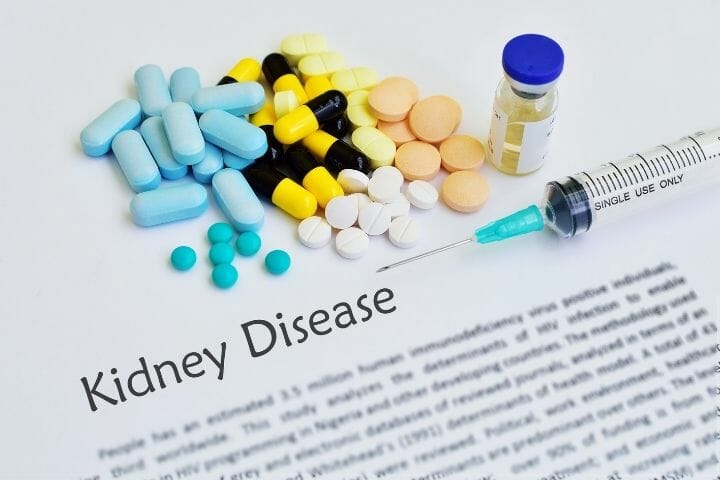
#8. Test Your Kidneys If You are At High Risk
Try to check your kidneys each year if you have diabetes, other chronic diseases, or a family history of kidney problems.
#9. Treat Your Urinary Tract Infections Immediately
Urinary tract infections have a terrible impact on your kidney. So it’s better to treat it as soon as possible.
What Are The Early Signs And Symptoms That Will Help Me Know I have Kidney Problems?
Kidney disease is a silent disease, i.e., it has no warning signs. You may lose 90 percent of your kidney’s functions before getting any signs and symptoms. However, I have underlined some early signs of kidney problems in general.
- Pain in kidney areas
- Headache
- Itching
- Loss of appetite
- Shortness of breath
- Blood in urine
- Changes in appearances of urine.
- Nausea
- Vomiting
- Difficulty in sleeping
- Bad Breath
- Metallic taste in the mouth
- Increased level of protein in the urine
- Hypertension when difficult to control with medicines
- Swollen feet and ankles
What Type Of Kidney Diseases Can I Have With Age?
#1.Kidney Stones
Kidney stones are a common problem with age. The minerals and other substances in your blood usually pass through your urine. But when you have kidney problems, these minerals form solid substances or stones in your kidney and are pretty difficult to remove through urine.
You have to have surgery to remove the stones from your kidney. The surgery usually takes 20 – 45 minutes, and you will have to stay one or two days in the hospital.
#2. Glomerulonephritis
Glomeruli are the microscopic structures inside your kidney that help properly filtrate blood. You may have glomeruli (Glomerulonephritis) inflammation with age because of infection, drugs, or autoimmune diseases.
Treatment
- Change in diet. Try to eat less protein, salt, and potassium in your diet.
- May require dialysis to clean the blood and remove extra fluid from the body.
- Diuretics to lessen swelling
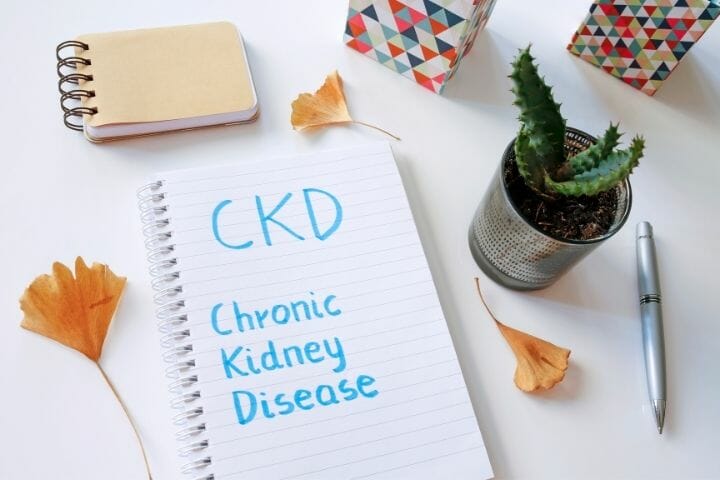
#3. Urinary Tract Infections
Infections in your bladder and urethra are pretty common, easily treatable. However, if not treated, the infections can spread to your kidneys and hinder their function.
#4. Chronic Kidney Disease
Chronic kidney disease is the most common form of kidney disease in older people. The primary cause of this disease is high blood pressure.
Your kidneys are constantly processing your blood. They are exposed to almost 20 percent of your blood’s total volume every minute. But high blood pressure increases the pressure in glomeruli, and gradually the filtering capacity of your kidney diminishes.
Eventually, your kidney will be damaged to the extent that it cannot perform its work. The doctor will recommend you do dialysis. Dialysis is a process that filters all the waste products from the blood. But it is not a permanent solution. Eventually, you may need a kidney transplant to survive.
Again diabetes is another cause of chronic kidney failure. The uncontrolled blood sugar level can damage the functional units of your kidney, and finally, you will need dialysis or a kidney transplant to survive.
#5. Polycystic Kidney Disease
In Polycystic kidney disease, many cysts grow inside your kidneys. When these cysts grow too much, then they can damage your kidneys.
How Can I Diagnose Chronic Kidney Disease?
#1. Blood Test
Your doctor will advise you to do a blood test. The test measures the amount of waste product called creatinine in your blood.
Your blood test results, gender, size, age, and ethnic group are used to calculate how many milliliters of waste products your kidneys should filtrate within one minute. This calculation will tell you about the glomerular filtration rate.
Healthy kidneys usually filter more than 90 milliliters of blood per minute. You may have chronic kidney disease when the glomerular filtration rate exceeds 90 ml/min.
#2. Urine Test
Urine tests give an overall picture of how your kidneys are working. Your doctor may recommend you do a urine test to check the level of albumin and creatinine in your urine.
#3.Other Tests
- Ultrasound scan to see how your kidneys look like and find out whether there are any blockages
- Kidney Biopsy – a small amount of tissue is removed from the kidney by needle and is kept under the microscope and examined.
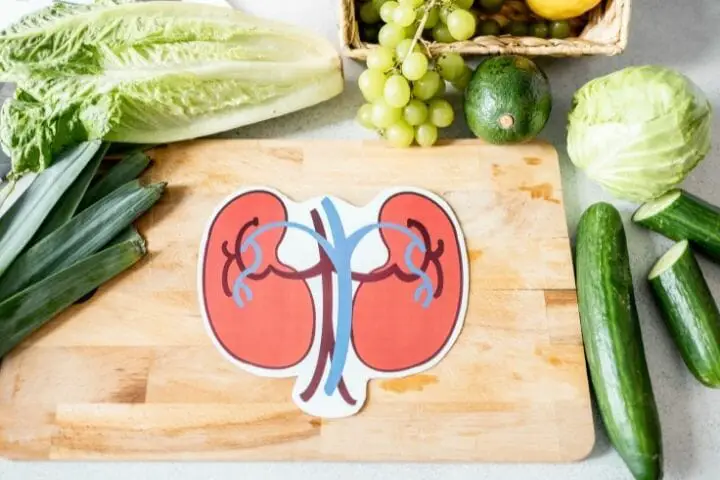
The Kidney Voucher Program
The kidney voucher is just like a coupon to use in the future. This program allows you to choose the most convenient time for kidney donation surgery, provided the kidneys should be working in good condition.
You can donate your kidneys to any stranger, and you get one or more vouchers in return. You can give those vouchers to any of your family members or friends who want a kidney transplant in the future, also known as the family voucher kidney program.
The donor can give the vouchers to five recipients, provided the recipients may or may not have kidney problems. But in the end, the recipient who will be in maximum need of a kidney transplant will get to use the voucher.
Remember, the vouchers do not guarantee kidney donation to your family member or friend right away, but yes, they will be prioritized first in the kidney transplant queue.
Wrap Up
Aging is a normal process that affects your body, including your kidneys. Your kidney changes in the way they look and work. Again, if you have diabetes or high blood pressure, you are at high risk of having kidney problems.
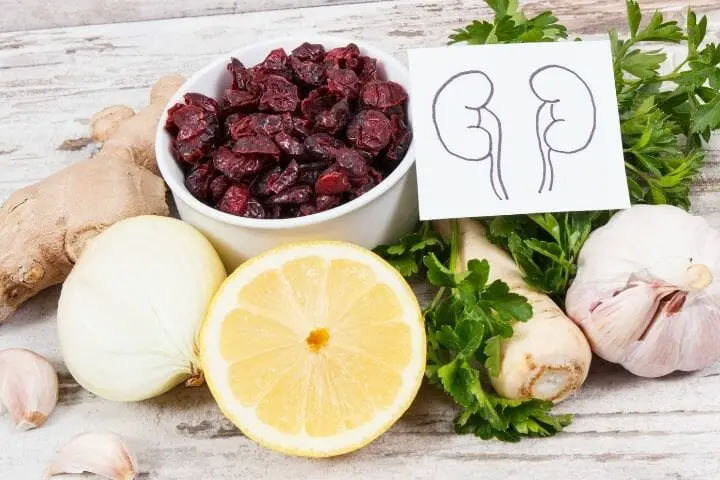
However, you can change your lifestyle, eat nutritious food, and exercise regularly to keep your kidneys in healthy condition after 60 years. Simultaneously people with diabetes or high blood pressure should take regular medicines to control their sugar level or blood pressure level in the normal range.
I hope the article has given you some valuable information and please don’t forget to share the article with someone looking for similar information. You can ask your queries and questions about improving kidney function in older adults. I will be happy to answer all your queries.
If you love the content, please make sure to post it in your groups and on your social media accounts so that it can get maximum reach.
